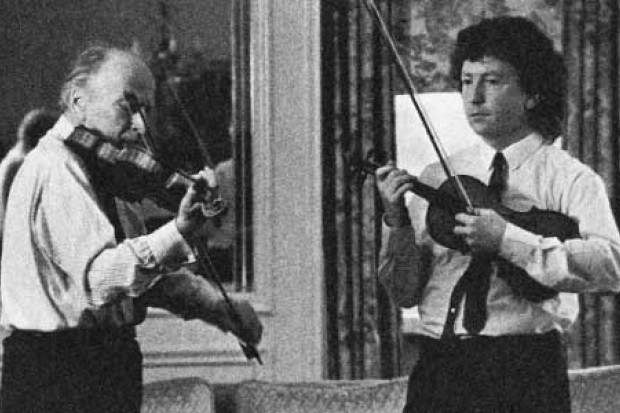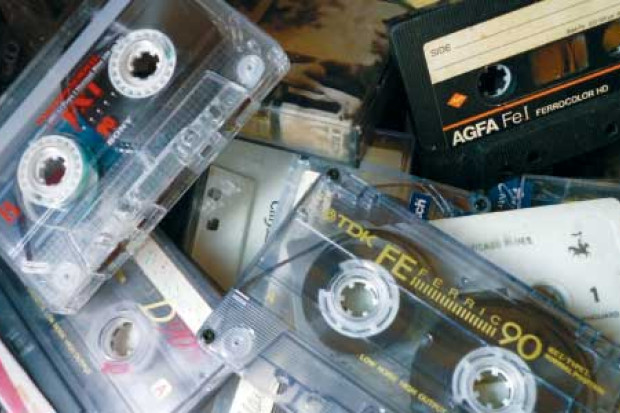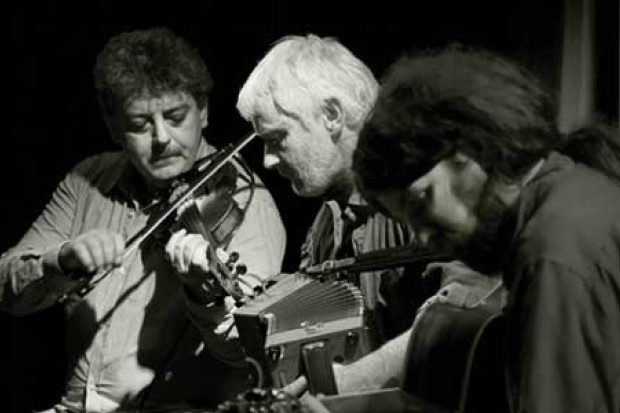Inbox
Thanks from Georgia
Jim Flannery, W.B. Yeats Foundation, Emory University, Georgia, USA, writes:
Thanks for the work you do with the Journal of Music in Ireland. It is a real delight to find in it page after page of stimulating ideas on a vast range of themes relating to the whole culture of Ireland. No jargon, no hidden agendas, no narrow factionalising, no cant. Just good talk inspired by music in all its multifarious forms and, above all, a respect for the intelligence of the reader.
Masters of Tradition CD
Eoin Brady, Executive Producer, RTÉ Lyric FM Label, Limerick, writes:
I am writing in response to Dermot McLaughlin’s review of the Masters of Tradition CD in the Nov–Dec JMI. RTÉ Lyric FM has now released nineteen CDs promoting Irish composers and musicians. We have received many reviews from publications in Ireland, the UK and online – some good, some bad and the weighting of any review is entirely the critic’s prerogative. However, when a reviewer moves from subjective analysis of a CD to ill-founded remarks about the label releasing the music then I feel that I have to respond and this is the first time I have done so.
I refer to Dermot McLaughlin’s misleading comment in the last paragraph of his review that RTÉ is claiming copyright in the music on the Masters of the Tradition CD; this is not true. I believe this statement may result from Mr McLaughlin’s misunderstanding of copyright law.
Several distinct copyright protected elements exist in any recording of a musical work. There is a separate and distinct copyright in both a piece of music itself and in each specific sound recording of that piece of music; the former is generally (but not always) owned by the composer and the latter is generally owned by the record company. Separate and distinct from those copyright interests, the performer of a piece of music also has what are known as performance rights in their live performance and also in relation to recordings made of their performances. As a general rule, a recording of a performance cannot be exploited without the consent of the performer. Performance rights are in addition to and independent from any copyright in relation to the work performed or any sound recording of the performance.
The composer/writer of a piece of music generally holds the copyright to the melody/words of that piece of music unless otherwise agreed. Usually the composer’s name is listed beside each track title. In the case of traditional music where the composer is unknown, the phrase ‘Trad. Arr.’ is used to acknowledge the performer’s particular arrangement of that piece. This is noted below the track listing on the Masters of Tradition CD, except where the composer is known in which case they are listed. Just as importantly as being noted on the CD, these details have been completed on our MCPS licence.
There is no legal requirement to use the © symbol and the (p) symbol (‘p’ in a circle) on the back of the CD and the use of these symbols themselves do not create copyright, but it is common to use them as a notice to the public that a work or a sound recording (as applicable) is copyright protected. The © symbol declares that a work is copyrighted by the name which follows that symbol. In this case RTÉ are using the © symbol to notify the public that RTÉ owns the copyright in the artwork and photos. The (p) symbol is the internationally recognised symbol of protection of a sound recording which declares that that particular physical CD production/recording is copyrighted to the name which follows (as stated above this is usually the record company). The copyright in a sound recording is owned by the person who paid for the making of that sound recording and in this instance the (p) symbol is used to indicate that RTÉ hold the copyright in this particular sound recording. Mr McLaughlin in his review mistakenly implies that RTÉ is claiming an interest in the music compositions or performances themselves which is not the case.
On the separate issue of the lack of sleeve notes, Dermot McLaughlin does not mention that this double CD is selling at only €17.99 – RTÉ managed to keep the cost down by reducing costs through not having sleeve notes, although full titles, all of the musicians and recording dates are given. If we had gone down the route of detailed sleeve notes for a CD with over forty musicians and thirty-one tracks, what was a two-year project would have become a four-year project and to be honest I’m not sure I would have had the stamina!
Dermot McLaughlin replies:
Eoin Brady helpfully clarifies RTÉ/Lyric FM’s stance in relation to its interest in various assets connected with this CD. However, I don’t think that the matter can simply rest on the back of what looks like a gentle, if unfortunately late, intervention by RTÉ/Lyric FM’s legal department or legal advisors. Let me make the following points.
Have a look at the track 1 credits (CD1). Allow me to tell you that Joe Bane is not the composer of the very common reel ‘Trim the Velvet’ – the CD is simply wrong on this point and it asserts a false claim. Who checked the listings, attributions and claims? My confidence level about this is very low.
I note with disappointment that Eoin’s final points on behalf of the national public service broadcaster relate only to cost and price and not to value. I strongly disagree with the suggestion that achieving a retail price of €17.99 is something that RTÉ should congratulate itself about here. I see many CDs produced on a shoestring budget by artists who take the trouble to provide decent notes on the music. From my own direct experience I fail to see how the job of writing or commissioning decent notes for this production could have taken anything like two years, never mind an additional two years. Two months would be more like it.
We need better performance standards from RTÉ when it comes to producing CDs of traditional music. No more wasted opportunities please.
Published on 1 January 2009












